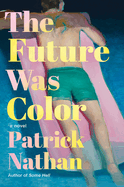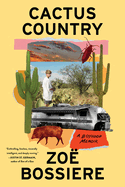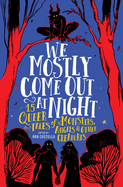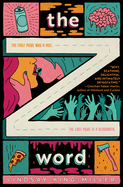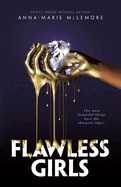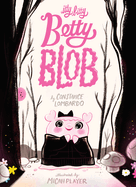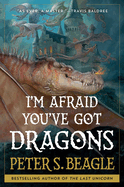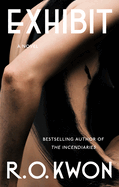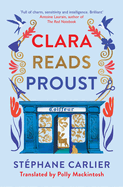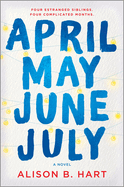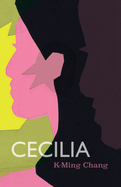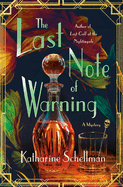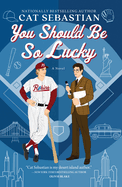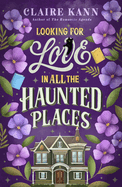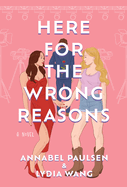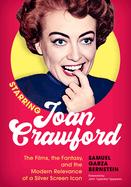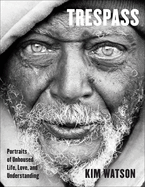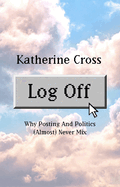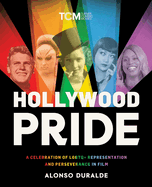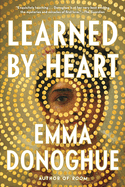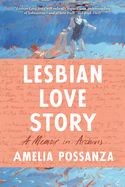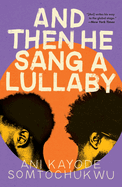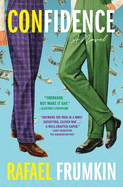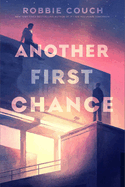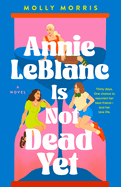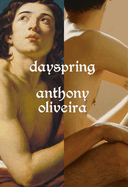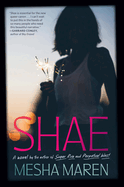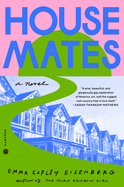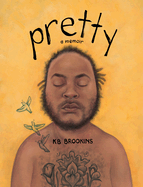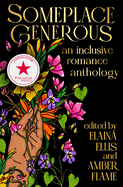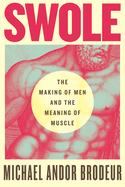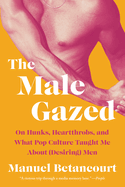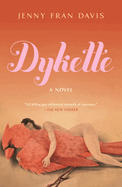Friday, June 7, 2024
We are kicking off Pride Month with fabulous book recommendations! Cactus Country by Zoë Bossiere is "a wise and wonderfully crafted... memoir of gender and a hardscrabble coming-of-age in the American Southwest"; The Future Was Color by Patrick Nathan "deserves to become a new lodestar in the ever-expanding constellation of gay literature"; and Exhibit by R.O. Kwon is "a searing study of art, desire, and bodily and intellectual freedom." Plus, for teen readers, We Mostly Come Out at Night: 15 Queer Tales of Monsters, Angels & Other Creatures by Rob Costello showcases "queer and trans authors in a gloriously layered collection" of "satisfyingly terrifying tales."
In The Writer's Life, Chris Colfer adds "a funny, adventurous, and heartfelt story" to the science fiction genre; and Justinian Huang has a recurring dream about partying with Oscar Wilde.
The Future Was Color
by Patrick Nathan
The Lavender Scare looms over the events portrayed in Patrick Nathan's exquisite second novel, The Future Was Color, like one of those unspeakable horrors that Hollywood screenwriter George Curtis conjures to threaten the lives of ordinary, freedom-loving Americans in his cheaply made science fiction flicks. George lives a meek existence in the summer of 1956, humbly tapping out new scripts in a sweltering office that he shares with two or three others, depending on who "either quit or disappeared or got blacklisted" in the stifling era of McCarthyism.
Privately, however, George is a quiet sort of renegade. A Hungarian immigrant to the United States, he has witnessed the rise of fascism and the cost of war. He longs to write something of greater political consequence than the black-and-white movies that studios lace with their pro-war propaganda. He also longs for the touch of his colleague Jack Turner. When friend and actress Madeline Morrison invites George to be a writer in residence at her Malibu estate, the opportunities for greater fulfillment begin to unfurl before him.
Nathan (Image Control; Some Hell) writes with the eloquence of a nimble mind working at the height of his powers. Gripping from the first sentence, The Future Was Color braves the atomic era with a canny allegiance to human tenderness and connection. George's story is one of resilience, and Nathan's Hollywood is sure to dazzle any readers who were captivated by Anthony Marra's Mercury Pictures Presents. Profound, life-affirming, and splendidly seductive, The Future Was Color deserves to become a new lodestar in the ever-expanding constellation of gay literature. --Dave Wheeler, senior editor, Shelf Awareness
Discover: The dazzling Hollywood setting of Patrick Nathan's life-affirming novel pales in comparison to the vibrant legacy of one lowly screenwriter who quietly defies expectations in the McCarthy era.
The Z Word
by Lindsay King-Miller
Sometimes, a breakup can feel like the end of the world. Lindsay King-Miller's The Z Word asks, what if it was? It's Pride month in San Lazaro, Ariz., and the heat is on, both inside the house party and out. Wendy is doing what she can to stand back on her own two feet after separating from Leah, a fixture in the queer community. The night after the John Hughes-like party, Wendy finds herself smack dab in the middle of a catastrophe: a zombie outbreak. Flesh-eating monsters, dangerous political agendas, and side eyes from her ex all stand in her way. Will she be able to persevere?
King-Miller (Ask a Queer Chick) writes an exhilarating, grotesque romp of a horror show, suffusing the 1980s frenetic pacing of an awkward rom-com with that decade's penchant for intense and gross-out body horror. Some of the dialogue feels ripped right from a George A. Romero film, as when one character declares, "I'm into peaceful coexistence," and another replies, "Okay... but this bitch wants to coexist his teeth into your spleen."
The novel isn't just endlessly entertaining. King-Miller's depiction of Wendy and Leah's breakup and the tension that comes from it is poignant and sympathetic, giving her apocalyptic story a beating, bloody heart. As in all good horror, King-Miller puts eyes on the social ramifications of the body politic. She looks at the co-opting of the LGBTQ+ movement by businesses as Pride becomes more profitable, which infuses The Z Word with delicious and relevant context. --Dominic Charles Howarth, book manager, Book + Bottle
Discover: Readers will want to be eaten whole by The Z Word, a funny, nasty John Hughes/George Romero mash-up of a breakup that goes from bad to worse.
Exhibit
by R.O. Kwon
R.O. Kwon's second novel, Exhibit, is a searing study of art, desire, and bodily and intellectual freedom. Northern California photographer Jin Han earned notoriety for her triptychs depicting "religious people in states of worship." Given her lapsed Christian faith and her inclusion of self-portraits copying her subjects' poses, she has received hate mail and a boycott. Jin then questions her own motives: "did I, by reviving what I grieved, risk indulging in tragic kitsch?" Interspersed in the narrative are anguished letters to a God she no longer believes in.
Doubt divides Jin from her devout parents in Seoul, while sexual needs drive her and her husband, Philip, apart. In the opening scene, Jin is immediately drawn to fellow Korean American Lidija Jung, an injured ballet dancer, at a party. Lidija shares Jin's interest in BDSM, which Philip is reluctant to explore. Moreover, Philip has decided he wants a baby, but Jin prefers to remain childfree. Little surprise, then, that Jin becomes increasingly intimate with Lidija, her muse. A new project even showcases the bruises and blood from their encounters. Soon, Jin is called back to Korea when her mother is hospitalized--an incident Jin's vestigial religious mindset leads her to interpret as punishment.
Kwon's sentences are like grenades, carefully wrought and concentrated with meaning. Staccato phrasing and poetic vocabulary allow Kwon (The Incendiaries) to pack much into this intense novel's short length. Though the prose threatens to overwhelm a somewhat familiar plot, the focus on art and independence, as well as the bisexual representation, make this stand out. It's ideal reading for fans of Melissa Broder, Teju Cole, and Brandon Taylor. --Rebecca Foster, freelance reviewer, proofreader and blogger at Bookish Beck
Discover: In R.O. Kwon's bold second novel, a Korean American photographer depicts her loss of faith, as well as her bisexuality and attraction to BDSM, through her art.
Clara Reads Proust
by Stéphane Carlier, transl. by Polly Mackintosh
Novelist Stéphane Carlier's Clara Reads Proust, translated from the French by Polly Mackintosh, opens as Madame Habib looks at the window of her hair salon "as if she is trying to solve its mystery." Though she concludes the problem is the name (Cindy Coiffure, a truly terrible name), her employee Clara knows it doesn't matter: "Someone will come in, the salon will come to life with the sound of murmured conversation, whirring hairdryers and the old hits on Radio Nostalgie...." At first, Clara is more observer than protagonist; it is from her perspective that readers see the salon and hear its noises and meet its characters, each finely drawn with easy gestures, such as Madame Habib's habit of "weighing up her earring in her left hand as if it were a marble," after removing it to answer the phone.
When a customer leaves behind the first volume of Marcel Proust's In Search of Lost Time, Clara tucks it away. Months later, when she opens it to read it, she's smitten, seeing it as something which, "for a reason she still cannot understand, will make her stronger." She's right, of course. As she reads, the shape of her desires begins to shift, and the steady accrual of pages matches a gradual unfurling within Clara that readers will love. A testament to the power of a great book, Clara Reads Proust is also a reminder of the power of time and attention and a willingness to step into the unknown, to let your life be changed for the better. --Sara Beth West, freelance reviewer and librarian
Discover: Clara Reads Proust is a testament to the power of a great book and a reminder of what can happen when someone is willing to step into the unknown, to let their life be changed for the better.
April May June July
by Alison B. Hart
In Alison B. Hart's beautifully crafted novel April May June July, the family's "Barber sadness" is a particular unhappiness born in tragedy: the disappearance of patriarch Frank Barber after he and three Iraqi associates were kidnapped in Iraq, where he worked as a civilian contractor.
Ten years after the kidnapping, his four children--April, May, June, and July--are unable to put aside hope that he may someday reappear. April throws herself into work and raising her children, but with a side of extramarital affairs. May disappears into herself, pulling away from friends and family alike. June remakes herself as Juniper, a star soccer player and rising coach, but struggles with alcohol. And July, the youngest and only son, tries to find his footing in college and his unrequited feelings for his roommate. But when April thinks she spots her father on a vacation in Dubrovnik, every hope--for Frank's life, yes, but even just for answers to the questions surrounding his disappearance--comes rushing back to the surface of their lives.
The Barber siblings' lives are each indelibly shaped by the politics of the United States' involvement in Iraq, despite living thousands of miles away. Hart invites readers to grapple with an understanding of the larger geopolitical forces at play, even as the siblings deal with their own individual grief, hope, and desperate search for answers. April May June July is part family saga, part missing persons case, part political thriller; a captivating and important novel that reveals just how personal the political is--and vice versa. --Kerry McHugh, freelance writer
Discover: April May June July is part family saga, part missing persons case, part political thriller, a captivating and important novel revealing just how personal the political is--and vice versa.
Cecilia
by K-Ming Chang
Cecilia, by the critically acclaimed novelist and short story writer K-Ming Chang (Bestiary; Gods of Want; Organ Meats), is a sensual and surreal novella about the intensity, eroticism, and haunting nature of girlhood friendships.
As a cleaner at a chiropractic office, Seven is used to the indecencies of the human body and passes her time falling into daytime imaginings to distract herself from reality. But when a chance meeting throws Seven and her childhood friend Cecilia back together, Seven's daydreaming spins out of control, taking her back to memories and imaginings from her girlhood. As Seven and Cecilia orbit each other in the present, the past increasingly bleeds through, unspooling desires Seven long made dormant.
Like Chang's previous work, Cecilia luxuriates in its visceral imagery of embodied desire. The writing borders on body horror, yet avoids becoming too grotesque. Instead, it allows space for readers to engage in a fascination with hunger, a transportive understanding of impulse. Rather than dismissing the eroticism of girlhood friendships as temporary, the unbound nature of Cecilia's time demands an acknowledgement of the more subversive nature of young sexual exploration. The tension of Cecilia and Seven's relationship--of what can be done but what shouldn't, of what they want but often fear--is the driving force behind the novella's pace. But the book's true wonder is the precariousness with which it navigates tones, moving from dread to humor, longing to rage. As readers witness this high-wire act of affect and desire, realization and devastation, they will be compelled by, if nothing else, the knife's edge that underlines the novella's plot, always threatening a fresh cut. --Alice Martin, freelance writer and editor
Discover: A phantasmagoric journey of a body's awakening, Cecilia is a quick yet explosive read about queer desire.
Mystery & Thriller
The Last Note of Warning
by Katharine Schellman
Katharine Schellman's third Prohibition-era mystery, The Last Note of Warning, is as jazzy and intriguing as the Charleston dance steps beloved by its protagonist, Vivian Kelly. Working as a dress delivery girl by day and a speakeasy server at the Nightingale by night, Vivian is stunned to find herself accused of murdering a wealthy client's husband. With one week to find the real killer before she's hauled off to jail, Vivian digs into the victim's life. Her investigation leads straight back to the Nightingale--and its alluring proprietor, Honor Huxley.
Schellman (The Last Drop of Hemlock) turns up the volume on her Jazz Age setting: dazzling beaded dresses, intoxicating cocktails, seductive tunes (sung by Vivian's best friend, Bea, on the Nightingale's stage). But she also delicately explores the nuances of Vivian's relationships with those she loves: Bea, willing to help Vivian but convinced her friend's tactics will get them both arrested; Vivian's sister, Florence, now married and living in Chinatown but still protective of her little sister; and Vivian's not-quite boyfriend, Leo, a bootlegger whose family connections to the police commissioner make it difficult for him to help her. Honor's ties to the victim also leave Vivian wondering whom she can trust. As she chases down clues from Harlem to Brooklyn, Vivian must also face her own fears of being abandoned and make difficult choices about trust and forgiveness.
Like the cocktails mixed by Danny Chin, the Nightingale's bartender (and Vivian's brother-in-law), Viv's third adventure is tart and satisfying, with a bittersweet, complex finish. --Katie Noah Gibson, blogger at Cakes, Tea and Dreams
Discover: Katharine Schellman's third Nightingale mystery mixes an intriguing murder case with dazzling Jazz Age details and difficult choices about trust and forgiveness.
Science Fiction & Fantasy
I'm Afraid You've Got Dragons
by Peter S. Beagle
The usual fairy-tale suspects receive a delightful makeover from beloved fantasist Peter S. Beagle (The Last Unicorn; The Way Home) in this charming, archetype-bending novel about a princess, her prince, and the royal dragon exterminator.
Gaius Aurelius Constantine Heliogabalus Thrax, who prefers to be called Robert, inherited his occupation in dragon pest control from his father. The work of killing the usually tiny dragons has never sat well with him, as evidenced by the number of dragonlets he's smuggled home and tamed. He secretly dreams of becoming a great prince's valet. "All right," Robert admits, "it wouldn't have to be such a great prince." When he's summoned to the local castle to perform a major dragon removal as part of Princess Cerise's campaign to impress handsome itinerant hero-in-training Prince Reginald, Reginald's own valet offers to teach Robert everything he knows in exchange for the not-small favor of helping the prince find and dispatch a very large dragon. What should be a straightforward task turns to catastrophe as a retinue led by Robert, Reginald, and Cerise encounters not only dragons but also an evil from the past bent on destroying them all.
Beagle puts a humorous spin on the traditional fairy tale with a blue-collar hero, a brainy and brave princess, and a prince with daddy issues. His trademark narrative warmth and folksy quips perfectly fit the whimsical bent of his nostalgic magical kingdom setting. Fans of T. Kingfisher's fantasy novels and Seanan McGuire's Wayward Children series will adore this heartfelt, sometimes wistful adventure. --Jaclyn Fulwood, blogger at Infinite Reads
Discover: Peter S. Beagle's nostalgic, whimsical fantasy follows a reluctant dragon exterminator, a bold, intelligent princess, and a prince with daddy issues.
Romance
You Should Be So Lucky
by Cat Sebastian
Queer historical romance author Cat Sebastian (The Queer Principles of Kit Webb) hits a home run in You Should Be So Lucky, a sexy and heartwarming will-they-or-won't-they set in the world of 1960s New York baseball.
When rising baseball star Eddie O'Leary gets traded to the New York Robins, his performance craters, and the team arranges for journalist Mark Bailey to improve his image with the fans. One reason Eddie hates New York is that there's no trusted outlet for his sexuality; the societal constraints of the era are more than window dressing. The illegality of homosexuality raises the stakes in Eddie and Mark's burgeoning romance beyond the threat of disapproval from baseball fans. Through stolen glances across crowded diners and locker rooms, Sebastian shows readers a world where love has to grow in the shadows.
But this novel isn't just about stolen kisses. Sebastian excels at light, smart prose to develop relatable characters like Eddie, with his moodiness, infectious enthusiasm, and vulnerability. He's a hitter in the midst of a slump whom readers can't help but root for. Mark, burdened by grief following the recent death of his partner, presents a gruff, jaded façade to the world that slowly melts under Eddie's persistent charm. Their courtship rounds the romance bases as opposites attract for all they're worth. In this story about healing, Eddie helps Mark confront his grief, while Mark becomes Eddie's anchor during his professional struggles.
You Should Be So Lucky is about finding solace in unexpected places, second chances, and the courage to swing for the fences, whatever the odds. --Elizabeth DeNoma, executive editor, DeNoma Literary Services, Seattle, Wash.
Discover: A grieving writer falls for more than the game when he agrees to help bolster the image of a charming baseball star in 1960s New York City in Cat Sebastian's sexy, heartwarming novel.
Looking for Love in All the Haunted Places
by Claire Kann
Claire Kann (The Romantic Agenda; If It Makes You Happy) offers a fresh take on the contemporary paranormal romance in Looking for Love in All the Haunted Places.
Lucky Hart has a "lifelong dream of legitimizing the supernatural," driven by her loved ones' rejection and fear of her extrasensory perceptive abilities. When the opportunity to audition for a role in a web series set in a haunted house comes up, she jumps for it. The challenge: live in Hennessee House for a month. The twist: every caretaker before her has fled the premises within a few nights. "Three white men hiring a Black woman to be the caretaker for a found-footage haunted-house web series," Lucky reflects. "It was the ominous opening sequence to a horror film before the real final girl showed up." But Lucky is determined to face the house and be the final girl. She might even find love along the way as she falls for Maverick Phillips, a production team member who seems to see--and value--her in a way no one else does.
Kann weaves several subplots into Lucky's experience, including a miniseries starring Maverick's young ghost-hunting daughter and a troubled producer with his own history in the house, to name a few. At times, this can feel unwieldy; the novel is at its best when Kann is exploring Lucky's relationships with Hennessee House and Maverick Phillips. It's here that Looking for Love in All the Haunted Places really shines, offering a smart, spooky romance with an asexual heroine, the hot single dad she's falling for, and the sentient (and possibly evil) house standing between them. --Kerry McHugh, freelance writer
Discover: Looking for Love in All the Haunted Places is a fresh paranormal romance featuring an asexual heroine, the hot single dad she's falling for, and the sentient haunted house standing between them.
Here for the Wrong Reasons
by Annabel Paulsen and Lydia Wang
Writing duo and romantic partners Annabel Paulsen and Lydia Wang give fans of dating reality TV shows a queer love story not often shown on screen with their sweet and lightly spicy debut rom-com. In Here for the Wrong Reasons, sparks fly between two women who face off among a group of contestants on a Bachelor-style dating show. Krystin is a lonely rodeo queen from Montana hoping to find the husband she thinks her life is missing, and Lauren is a influencer who wants to grow her platform while keeping her attraction to women under wraps. While Krystin starts by giving the show a genuine shot, Lauren just wants to make it far enough to win some social media clout and brand deals.
As the show progresses and the contestant pool dwindles, the two women first find themselves forced together during a group date involving mud wrestling (a direct reference for devoted Bachelor fans) and then drawn to each other when the cameras are off. While they both anticipate a temporary fling as they surrender to their chemistry, the considerations of life outside the show raise long-buried questions about who they are and what they truly want. Paulsen and Wang bring humor without disparagement in their dating-show nods (including meet-the-contestant bios, villain edits, and producer interference), and they give Here for the Wrong Reasons emotional heft without straying from a light, feel-good romance that ends as any good Bachelor season should: with a podcast transcript in which the couple shares their post-filming journey to happy-ever-after. --Kristen Coates, editor and freelance reviewer
Discover: This debut novel is a fun and sweet queer rom-com for fans of dating reality shows.
Biography & Memoir
Cactus Country: A Boyhood Memoir
by Zoë Bossiere
Cactus Country: A Boyhood Memoir tells of living as a boy in the desert, struggling with gender, class, and a shortage of options for self-expression, and eventually taking a great leap in leaving for a wider world.
At age 11, Zoë Bossiere moved with their parents to a trailer park on the outskirts of Tucson, Ariz. In Cactus Country, they were on the whole able to make a fresh start, inhabiting a long-held dream of boyhood. The version of masculinity they found in the desert is characterized by stoicism, camaraderie, and violence. Especially as their body entered puberty, Bossiere struggled with gender expression in a world where they had never encountered the concept of transgender. After a troubled childhood and young adulthood, it was by studying creative writing that they eventually saw a way out of the Tucson area and into new spaces, geographic and otherwise, including the concept of genderfluidity.
Cactus Country is a wise and wonderfully crafted memoir, treating its characters and subjects with compassion in the face of assaults, addictions, dysfunction, and violence. The desert and Bossiere's experiences there are stark and severe but also include earnest attempts at connection. They must leave Cactus Country to grow and to find their truest self, but it's only by returning in memory that their journey begins to feel whole. After a childhood as harsh as the desert sun, they write tenderly about place and a past "where a Cactus Country boy would always be a Cactus Country boy."
Gorgeously written, thoughtful, and tough, this memoir of gender and a hardscrabble coming-of-age in the American Southwest excels at nuance. --Julia Kastner, librarian and blogger at pagesofjulia
Discover: This hard-edged, incisive memoir of gender-fluidity in a desert trailer park offers an essential perspective.
Starring Joan Crawford: The Films, the Fantasy, and the Modern Relevance of a Silver Screen Icon
by Samuel Garza Bernstein
Whether Joan Crawford mattered artistically is debatable; that she still matters culturally is Samuel Garza Bernstein's exuberantly argued thesis. In Starring Joan Crawford: The Films, the Fantasy, and the Modern Relevance of a Silver Screen Icon, Bernstein holds a loupe to Crawford's deathless high-camp persona--both on- and offscreen.
Mildred Pierce (1945) Oscar winner Crawford's unstinting self-promotion defines her indomitable image. She was born Lucille LeSueur in San Antonio, Tex., at some point between 1903 and 1908; whatever her famously guarded birth year, her childhood was, Bernstein recounts, Dickensian, her determination to succeed in show business that "of a Kardashian." As Bernstein walks readers through what he considers the five phases of Crawford's career, he identifies its peaks--"We love it when she is strong and gets what she wants. But it is also a little scary"--and valleys: "This is not the career of a movie star. It is, however, the career of a future drag icon." Naturally, Bernstein has something to say about the Crawford bio treatments Mommie Dearest (1981) and Feud: Bette and Joan (2017).
Starring Joan Crawford is a splendid pastiche. Bernstein (Mr. Confidential) supplies copious photos; film-by-film synopses with original credits; the odd reproduced-in-full article by or about Crawford; and recaps of his fantasy Crawford vehicles (e.g., 2023's Barbie). Bernstein implicitly makes the case that humor and serious criticism aren't unnatural bedfellows, as when he offers this measure of Crawford's still-thriving legacy: "The enduring mystique of Casablanca notwithstanding, Ingrid Bergman has no memes or fridge magnets." --Nell Beram, author and freelance writer
Discover: Exuberantly arguing for Joan Crawford's continuing relevance, Samuel Garza Bernstein holds a loupe to her deathless high-camp persona--both on- and offscreen.
Social Science
Trespass: Portraits of Unhoused Life, Love, and Understanding
by Kim Watson
Photographer, director, and writer Kim Watson provides an unflinching depiction of unhoused people in his striking photojournalistic collection, Trespass. Watson shares photographs, stories, and reflections (all with his subjects' permission) gathered over four years connecting with unhoused people on the streets of Los Angeles, Calif. Every page of Trespass is stunning, both in the visual impact of Watson's striking black-and-white photography and in the depth of the narratives he offers to accompany them. The combination brilliantly captures his subjects' complexity and humanity, inviting empathy and compassion from readers even as he condemns the systems that have failed so many. He recalls beautiful music heard, meals shared by those with none to spare, and families finding hope in unlikely places; he also recounts stories of caseworkers who never appear, phone calls unreturned, yearslong waiting lists for services, and the indignity of navigating a system never meant to recognize the humanity of those within it. "Is this the best we can do? The question haunts me."
It's a question that will--and should--haunt readers as well, one that makes it tempting to look away or skim past some of the more harrowing bits. But to refuse to engage with the reality Watson presents here is to perpetuate the same failures of society Watson has documented. This pain is "the price we as a society pay when we are complacent," Watson argues. Trespass is an invitation to view homelessness differently, to face biases and learned behaviors, to work toward true understanding, and care for those in dire situations. --Kerry McHugh, freelance writer
Discover: This stunning work of photojournalism offers an unflinching depiction of homelessness in Los Angeles, with photographs, stories and reflections that urge readers toward more empathy and compassion.
Log Off: Why Posting and Politics (Almost) Never Mix
by Katherine Cross
Katherine Cross is a Ph.D. candidate studying online harassment and social media. Her urgent and irreverent treatise, Log Off: Why Posting and Politics (Almost) Never Mix, makes a convincing case that fellow users of open platforms like X and Bluesky ought to reassess their relationships with the technology. "There is an essentially Roach Motel quality to these platforms," Cross writes, highlighting one of her foundational concerns: that the algorithmic structures gamifying human attention-seeking tend to bog down political activism that is conducted predominantly on these apps. Rarely, she argues, do those movements achieve meaningful momentum beyond the "walled gardens" of social platforms.
Cross, however, is no scold. She writes with a self-deprecating affability that arises from a personal fondness for "shitposting" and for the girlfriends she's met on social media. Log Off, at times, reads as a digest of online dramas that have bubbled up in queer and activist communities over the years, but through analyzing these beefs, Cross hopes to discover "how we, especially among the political left, and its constituent movements like feminism, came to believe that the revolution had to be live-tweeted." Her point is not that social media is bad, but rather that it's not an effective replacement for in-person community building, something fundamental to political change.
With iconoclastic flair and personable anecdotes, Cross is an incisive guide through the jungle of social media. Readers blissfully ignorant of what a Twitter "main character" is likely have little need for this book, but the extremely online may appreciate Log Off as an antidote to becoming terminally so. --Dave Wheeler, senior editor, Shelf Awareness
Discover: This irreverent and convincing treatise is an insightful analysis of social media's capacity to blunt political activism.
Performing Arts
Hollywood Pride: A Celebration of LGBTQ+ Representation and Perseverance in Film
by Alonso Duralde
Sure, the movie is rarely as good as the book, but Alonso Duralde's Hollywood Pride: A Celebration of LGBTQ+ Representation and Perseverance in Film is a book that's as good as many movies: ceaselessly entertaining and surprising and, with its wealth of visual elements, quite the spectacle.
Vito Russo's The Celluloid Closet and its corresponding documentary are Duralde's frequent touchstones, but his like-themed Turner Classic Movies-branded effort offers something zippier. In eight chronological chapters, each launched with a page capturing its historical moment (the production code, the AIDS crisis), Duralde provides annotated lists of the period's LGBTQ+-relevant films, followed by brief bios of the era's queer film icons. Duralde, who's behind two Christmas-movie books as either author or coauthor, is a droll writer, but Hollywood Pride is serious business. Taking an "Is it good for the gays?" approach, he folds into his own assessments the sometimes-inharmonious insights of other cultural observers. In a section devoted to the golden era's sissy archetype, Duralde quotes both screenwriter Arthur Laurents, who calls the trope "disgusting," and actor/writer Harvey Fierstein, who's for "visibility at all costs."
In that sportingly contentious spirit, readers of Hollywood Pride will doubtless bristle at the inclusion of some films (Frozen and Frozen II?) and lament the omission of others. About the latter gripe, readers should be mindful of Duralde's observation that it would hardly be possible to list "every single queer film produced" from around 1990 onward: "There are simply too many to count, and that's a good thing." --Nell Beram, author and freelance writer
Discover: With its annotated lists of LGBTQ+-relevant films, brief bios of queer film icons, and wealth of visual elements, Hollywood Pride is entertaining, surprising, and quite the spectacle.
Now in Paperback
Learned by Heart
by Emma Donoghue
Although Irish Canadian author Emma Donoghue (Haven; The Wonder; Frog Music) tends to bounce between the past and contemporary settings, she has a winning streak of historical fiction. In Learned by Heart, her immersive, sprightly, and sensual novel about the risks of forming bonds across societal divides, she takes inspiration from the true story of how diarist Anne Lister (the subject of the HBO series Gentleman Jack) met her first love, Eliza Raine. Lister and Raine, as they refer to each other, are 14-year-old roommates at a boarding school in York, England, in 1805. They may seem like opposites--Raine, a timid biracial girl with a sizable inheritance; Lister, a boisterous trouble-maker whose parents can barely afford tuition--but "[k]indred sympathy grows between them like a flowering weed" nonetheless. Soon, they are best friends and then lovers. They even secretly exchange vows in a church, Raine thereafter calling Lister "husband." But as letters dated 1815--interspersed throughout the story--from a heartbroken Raine testify, mental illness and other partners intrude. This idyllic relationship wasn't to last.
Lively present-tense narration and copious period detail (the Napoleonic Wars, newspaper rental, smallpox vaccinations, a magic-lantern show, faux side curls attached to a headband) make this feel authentic yet evergreen. Raine's perspective gives readers a winsome sideways look at Lister, who is forever earning "disputatiousness marks," and exhibiting unladylike behavior. "Perhaps I'm the connecting link between the sexes," she muses. The characters' delight in language makes for playful prose full of euphemisms, Latin phrases, and French proverbs. And in the center of it all is a tender record of groundbreaking young passion. --Rebecca Foster, freelance reviewer, proofreader and blogger at Bookish Beck
Discover: Emma Donoghue's immersive, sprightly, and sensual novel about how diarist Anne Lister met her first love, Eliza Raine, illuminates the risks of forming bonds across societal divides.
Lesbian Love Story: A Memoir in Archives
by Amelia Possanza
In her audacious heartthrob of a memoir, Amelia Possanza revives seven queer romances from the past, hoping to better understand her own lesbian identity. "I was certain that if I uncovered enough lesbians in history, they would reveal... a blueprint of how I might build my own life," she writes in the introduction to Lesbian Love Story. What she discovers, however, by scouring libraries for figures obscured by historical bias, is nothing so prescriptive. She finds an expansive and adaptable collective that spans centuries and includes female husbands, drag kings, Olympic athletes, political activists, caregivers, and more.
Possanza converses with these historical lesbians through a dazzling approach to shared text, injecting her prose with their preserved words, transferred from diaries and interviews. She lays bare her own yearnings and insecurities alongside those of her forebears in a moving assertion of belonging. One subject, Rusty, was institutionalized for her gender deviance and threatened with shock treatment. Possanza relays Rusty's testimony in italics: "I found a nurse's uniform in the closet, I put it on and I just walked out of the hospital." Possanza then observes, "Rusty always did seem to understand the power of a uniform"--to grant a person access to bathrooms and employment, as well as a kind of authenticity that Possanza still grapples with herself.
Her vulnerability is matched only by her sense of joy in discovering an ongoing and shifting discussion about "women who love women" and others who exist outside of such easy definitions, while persevering with a distinctly lesbian worldview. Lesbian Love Story is a triumph, as romantic as it is perceptive. --Dave Wheeler, senior editor, Shelf Awareness
Discover: A curious and vulnerable trip through the archives gives one modern-day lesbian clues to what that word has meant to the generations who came before her.
And Then He Sang a Lullaby
by Ani Kayode Somtochukwu
A prophecy heralding a name-carrying boy in a family of girls manifested at the expense of a mother's life is a compelling hook to launch both a debut novel and the Roxane Gay Books imprint. In And Then He Sang a Lullaby, queer liberation activist Ani Kayode Somtochukwu anchors readers in the Nigerian boyhoods of August and Segun. The two meet as young men at university--one embracing his sexuality and revolution, the other hiding as best he can. A plot hinging on codified homophobia and the risk of falling in love with the cute boy at the cybercafé could sweep this narrative along on its own, but Ani's craft elevates this story beyond narrative ("he was enveloped with pangs of incompleteness, an almost, something he should feel that he never would, someone he knew enough to love but never met"). Family complexity and sacrifice blend with vibrant yet hidden love in a novel that doesn't explain Nigeria to readers--it simply is Nigerian.
After spending his life reckoning with the mere fact of his existence (and his mother's death at his birth), August is challenged by Segun's refusal to cower: "Segun did not want just to believe in revolution, he wanted to participate in building it." As August's shame dissipates, and his persistent sense of his mother-as-sacrifice fades, he begins to discover his true self. But the cost is high.
Like pressing a tender bruise, And Then He Sang a Lullaby leaves a sweet ache in its wake and does so with such fervor that it's easy to forget this is Ani's first novel. --Kristen Coates, editor and freelance reviewer
Discover: This debut showcasing love as both obligation and freedom asks what two men living a full life, falling in love, and exploring revolution could be in a hostile world.
Confidence
by Rafael Frumkin
Ezra Green and Orson Ortman meet cute, if one considers finding each other in a juvenile detention program charming. Rafael Frumkin (The Comedown) uses this set-up to its utmost impact in the amusing and razor-sharp Confidence. The two teens recognize in each other a propensity for conning others out of money. As adults, they prey on wealthy women and even richer men: conservative senators, lobbyists, evangelists and their "cheated-on wives," all of whom they call "blood suits." Then they stumble on their ultimate con game: establishing NuLife, a company selling happiness from wearable magnets. Ezra takes care of the business and charismatic Orson deals with the spiritual side as the two establish a sexual relationship. Apparently, no one told their clients happiness can't be bought. NuLife's phenomenal success expands internationally, with an upstate New York retreat called The Farm where devotees stay, making "a sort of trendy pilgrimage." Eventually, their empire cracks--a high-profile financial investigator accuses them of fraud, calling them "criminal" on national television; a graduate student claims they stole his idea; and victims they bilked years before go public. When violence erupts, it's surprising yet not unexpected.
Frumkin presents a sharp con game and heist plot in Confidence, offering perceptive views of business and love--and the need to believe in something. Ezra clearly is more smitten, though Orson is an opportunist, willing to do anything--and sacrifice any relationship--for his ambition. No matter how outlandish their exploits, Frumkin keeps readers firmly on their side. --Oline H. Cogdill, freelance reviewer
Discover: Two men recognize in each other a propensity for bilking money and find the ultimate scheme in this queer approach to the con game and sharply plotted thriller.
Children's & Young Adult
We Mostly Come Out at Night: 15 Queer Tales of Monsters, Angels & Other Creatures
by Rob Costello, editor
Rob Costello's editorial debut unites queer and trans authors in a gloriously layered collection celebrating richly voiced and refreshingly diverse LGBTQ+ teens facing frightening yet freeing entities from without and within. Here, monstrousness and magic parallel that which society fears--queerness, asexuality, trans lives--and through transformations both tiny and tremendous, teens enduring discrimination show how amazing they can be.
We Mostly Come Out at Night is deeply original even in its retellings. A seductive "Sleeping Beauty" villainess crashes a high school prom to rally the gays in Sarah Maxfield's entry, "How We Founded Club Feathers at the Discard Depot," while Noah seeks an abortion for himself before the flood in "Sons of God and Daughters of Humans" by H.E. Edgmon. Ethnic diversity shines, too. Alexandra Villasante centers Yemanjá ("the mother of the sea") in "Other Fish," an addicting twist on "The Little Mermaid," and a Basque boy seeks revenge in 1541 New Spain ("The Freedom of Feathers and Fur" by David Bowles). Multiple tales unapologetically represent ace and trans experiences, such as Bloody Mary pondering gender fluidity: "Humans can have so many selves" ("How to Summon Me" by Val Howlett). Lilting prose enchants ("a breath of brine and mineral secrets"), sassy lines entertain (" 'You're alive?' The gargoyle blinked. 'What a keen sense of observation you have' "), and romance resonates ("You're pretty hot for someone who has been living off fish tails"). Each story includes a "Monster Reflection" by the author, revealing what attracts them to such satisfyingly terrifying tales. The message here? "Too bad, world. You will make space." --Samantha Zaboski, freelance editor and reviewer
Discover: A varied cast of LBGTQ+ teens faces frightening yet freeing monsters, both without and within, in this gloriously layered collection by queer and trans authors.
Flawless Girls
by Anna-Marie McLemore
A girl thrust into an eerily impeccable finishing school must unravel the madness beneath its glimmering façade in Flawless Girls, an exquisitely crafted YA tale about the prescribed bounds of femininity by Anna-Marie McLemore (Lakelore; Mirror Season).
The Alarie House, a renowned finishing school, trains its girls to exhibit unyielding grace. Seventeen-year-old Latina Isla Soler left after one day. But her older sister, Renata, finished her schooling and returned home "polished to a shine." This "doll version" of Renata frightens Isla with how completely she has "forgotten her own sharp, glittering heart," and with how something like rage flickers behind her eyes. Isla, desperate to undo Renata's metamorphosis, re-enrolls at the Alarie House.
Isla learns little through the onslaught of daily comportment lessons, but the strangeness of night welcomes her. After dark, atop the roof of a place gilded in the legend of its utter refinement, is something wild. Girls dance carelessly, their postures broken from their daytime wine-stem rigidity. They scream, teeth glinting like diamonds. Isla is shown the same unhinged ferocity she'd glimpsed in Renata--one she senses rising within herself.
Flawless Girls splits storied notions of proper femininity--and gender itself--apart at the seams in an exemplary portrait of learning to express oneself. The horror in the book lies in the house's absurd beauty, in the girls' untamed nights never discussed by day, in unreal fragments of experience that deflect Isla's questions. McLemore's signature prose both cuts like ice and rolls languidly off the tongue. --Samantha Zaboski, freelance editor and reviewer
Discover: A girl thrust into an eerily impeccable finishing school must sort the madness beneath its flawless façade in this exquisitely crafted YA tale about the prescribed boundaries of femininity.
Itty Bitty Betty Blob
by Constance Lombardo, illus. by Micah Player
Readers might know the one about the gloomy introvert who feels like an outcast in a sunshine-and-lollipops world. This scenario gets handily flipped in Itty Bitty Betty Blob, Constance Lombardo and Micah Player's wry, sweet, and goofily good picture-book tribute to outsiders of all kinds.
Itty Bitty Betty Blob, who attends Ghoulington Academy and resembles an anthropomorphized glob of pink chewing gum, knows she's different from other monsters: she's really into rainbows and flowers. Anticipating picture day, Betty practices her most ferocious faces, but try as she might, she knows that "fierce is not me." On her anxious picture-day walk to school, she follows a supercute pink puffball into the woods and finds herself "in a place as bright on the outside as she felt on the inside." The experience stokes her confidence in herself in a way that ultimately has a ripple effect on her crotchety classmates.
The weird-is-normal all-ghoul world of Itty Bitty Betty Blob has its antecedents, but Lombardo (Tiny Spoon vs. Little Fork) marks this territory as her own. There's the inclusion of Betty's unconditionally loving blob mom, and some choice wording: in art class, Betty frets that "nothing came out ugly," and while singing in the school chorus, Betty's "GRRRs turned into GRRRA-LA-LAAAs!" Player (Vampire Vacation), working digitally, seems to be channeling Charles Addams (who knew something about poking fun at "normal") with the book's washy gray and sepia backgrounds. Against them, Betty, in her resplendent pinkness, shines Hubba Bubba bright. --Nell Beram, freelance writer and YA author
Discover: A classic premise--a gloomy introvert feels like an outcast in a sunshine-and-lollipops world--gets flipped in this goofily good monster-centered picture-book tribute to outsiders of all kinds.
Another First Chance
by Robbie Couch
A gay teenager mourning his best friend joins a cryptic scientific study in this intense, speculative YA novel.
It has been one year since 18-year-old, blond and blue-eyed River's best friend, Dylan, died in a car crash after driving and texting. Every day River drives by a billboard plastered with Dylan's face and "the worst line in advertising history... DON'T DREXT LIKE DYLAN DID." River is heartbroken and angry that his best friend has gone from "Dylan the Person to Dylan the Tragedy." On the eve of Dylan's "deathiversary," River gives the billboard an "upgrade" by spray painting a giant mustache on Dylan's photo. But he is caught in the act and blackmailed into joining the Affinity Trials, a scientific study researching students who are "struggling socially." Even worse, Mavis--Dylan's former girlfriend, who has given River "the silent treatment" for a year--is also participating in the trials. The teens are forced to deal with their shared struggle when they realize that Affinity is lying about the trial's true purpose; if they want to uncover the truth, they will have to work with both each other and their own grief.
Author Robbie Couch (If I See You Again Tomorrow) combines an intriguing mystery with a nuanced portrayal of friendship and sorrow. Chapters alternate times and narrators, giving Dylan's perspective on the day of his death and River's present-day perspective. The changing points of view build suspense while fleshing out the boys' relationship. Although River is often chastened by adults for his "inappropriate reactions" to Dylan's death, Another First Chance suggests that there is no correct way to grieve. --Alanna Felton, freelance reviewer
Discover: A grieving teen is blackmailed into participating in an enigmatic scientific study in this suspenseful YA novel.
Annie LeBlanc Is Not Dead Yet
by Molly Morris
A teenage girl wins the chance to bring her best friend back from the dead in this quirky and compassionate debut YA novel.
Every 10 years, the small town of Lennon, Calif., holds a peculiar contest in which the winner gets to bring one person back from the dead "for exactly thirty days, after which they must return to the afterlife." Seventeen-year-old "Resident Virgin Dork" Wilson Moss doesn't believe she'll win when she impulsively enters to resurrect her ex-best friend, Annie LeBlanc. It therefore comes as a surprise when Annie comes back to life eager to spend time with Wilson, acting as if nothing has changed between them. Wilson then discovers a loophole in the contest rules that she hopes may let Annie stay alive. The only problem is the plan requires the cooperation of Ryan Morton, daughter of the owner of Lennon's "most famous restaurant" and Wilson and Annie's former friend who now hates them both. (Except for that one awkward evening when Ryan and Wilson kissed.) With her 30 days dwindling, Wilson is determined to "bring my two best friends back together again" for good.
Annie LeBlanc Is Not Dead Yet does not elaborate on the magic behind Annie's return or the origins of Lennon's contest. Instead, author Molly Morris uses an outlandish speculative premise as the starting point for a coming-of-age story exploring grief, nostalgia, and friendship. Though the novel's pacing is uneven--despite the time constraint on Annie's return, there is little sense of urgency--compelling characters are likely to endear readers to Morris's work. --Alanna Felton, freelance reviewer
Discover: A teenage girl wins the chance to bring her best friend back from the dead in this quirky and compassionate YA novel.
Pride
The Writer's Life
Chris Colfer: 'I Have Never Had So Much Fun Writing Something!'
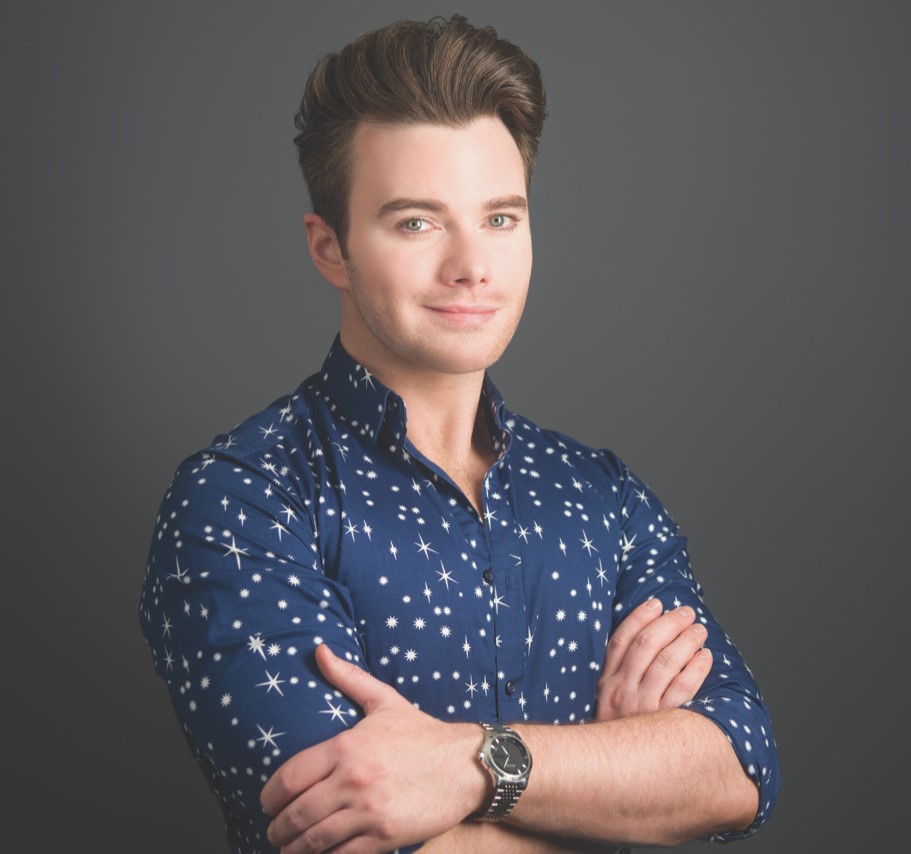 |
|
| Chris Colfer (photo: Andrew Scott) |
|
Chris Colfer is a bestselling author and Golden Globe-winning actor. He was honored as a member of the TIME 100, Time magazine's annual list of the 100 most influential people in the world, and his The Land of Stories series recently celebrated its 10th anniversary. Roswell Johnson Saves the World! (Little, Brown Books for Young Readers), an adventurous romp around the universe for middle-grade readers is Colfer's first work of science fiction. Here, he chats with Shelf about the fun of writing speculative books that take place in our world, the truth in his fiction, and just how autobiographical a book about alien adventures may be.
Would you kindly tell our readers what Roswell Johnson Saves the World! is about?
In a nutshell, Roswell Johnson is a story about a brilliant young boy who accidently gets abducted by aliens and has a wild adventure in space while trying to save Earth from an evil alien species.
This is your first work of science fiction, correct?
I have always been a huge fan of science fiction and thought I could add a funny, adventurous, and heartfelt story to the genre. I'm also hoping the story will make my young readers excited about science and curious about all the wonders our galaxy has to offer.
You note at the beginning of the book that, "while some elements in this book are exaggerated for dramatic effect, all science described is based on actual" science. How much of the content of the book is based on alien lore and how much is pure Colfer imagination?
I would say 10% is Colfer imagination but 90% of the book is inspired by real-life events and eyewitness accounts. I took liberty with the names and personalities, but almost every spaceship and alien I describe comes from a real report.
On that note, was it a ton of fun to come up with names, places, features of aliens, and alien planets?
I have never had so much fun writing something! Surprisingly, everything felt very natural and organic as I wrote it. I rarely had a moment when something didn't feel authentic. Many times, I would say to myself, "Yeah, that sounds right. What else would it be called? What else would those aliens do?" Maybe real aliens planted the information into my brain?
I loved that it's against intergalactic law for species in the Galactic Alliance to "disturb, disrupt, or displace" life-forms or ecosystems on other planets and that species need approval before "interaction, interference, or indoctrination." Did it take a long time to get this alliteration, or did it pop into your head fully formed?
For the most part, the story came to me fully formed. The Galactic Alliance and the Intergalactic Laws are based on the United Nations and the International Laws human beings are expected to follow. If I ever came to a roadblock, I would ask myself, "If this were all real, what's the most practical way aliens would deal with this situation?" That trick helped me a lot while building the story.
Music is really important in this novel. What drove you to include so many musical references?
Personally, I'm just a big fan of the Fugees, Whitney Houston, and David Bowie, so it was fun to give them a shoutout. While writing the A Tale of Magic series, I couldn't include any pop culture references because the story took place in a different dimension. It was so nice to finally include as many references as I wanted--almost like a pair of handcuffs had been unlocked. I hope the references will expand my readers' musical and cultural tastes.
Roswell Johnson is "one of the only Black students in his class" and he lives with his grandmother and grandfather on "one of the first Black-owned farms in the state of Oklahoma." What inspired you to write from this character's point of view?
I wanted to tell a story about a child who must save a world that isn't very kind to him. For me, the best protagonist for the task was a young man of color. I hope reading about Roswell's journey through the cosmos and his interactions with alien species of all different colors, shapes, sizes, and belief systems will show my young readers how pointless and damaging prejudice is. Every planet is stronger when it works together.
In 2021, you received a Free Speech Defender award from the National Coalition Against Censorship. At the beginning of a new series, how are you feeling about the increasing rate of book bans nationwide? Are you still dealing with your own books being banned?
I believe so. I find out watching the news just like everyone else. I'm not sure what infuriates me more about these book bans: the fact that the bans are happening, or that politicians aren't even being subtle about the type of books they're targeting. There is absolutely no reason why my books and countless others should be taken out of schools and libraries. These bans are purely meant to erase all compassion, understanding, and reference for the people these backwards laws are hurting. It's tyranny 101.
A few years ago, I attended a bookstore event you did in Boston, Mass. What has your relationship with indie bookstores been like? Are there particular stores you're always excited to visit?
I've always thought indie bookstores have better relationships with their customers. And vicariously, I get to have better relationships with my readers. I also love visiting indie bookshops on tour because I get a real sense of their community when I'm there. And I could never pick a favorite stop! They're all doing the lord's work.
Is there anything else you'd like to tell Shelf Awareness readers?
Roswell Johnson Saves the World! is much more autobiographical than you might believe, but I've been sworn to secrecy.... --Siân Gaetano, children's and YA editor, Shelf Awareness
Book Candy
Book Candy
Mental Floss highlighted "6 scientific benefits of reading more."
---
DesignTaxi showcased "a dollhouse that shifts into an elegant bookshelf when you want it to."
---
Atlas Obscura explored "how crossword creators make our favorite word games."
The Writer's Life
Reading with... Justinian Huang
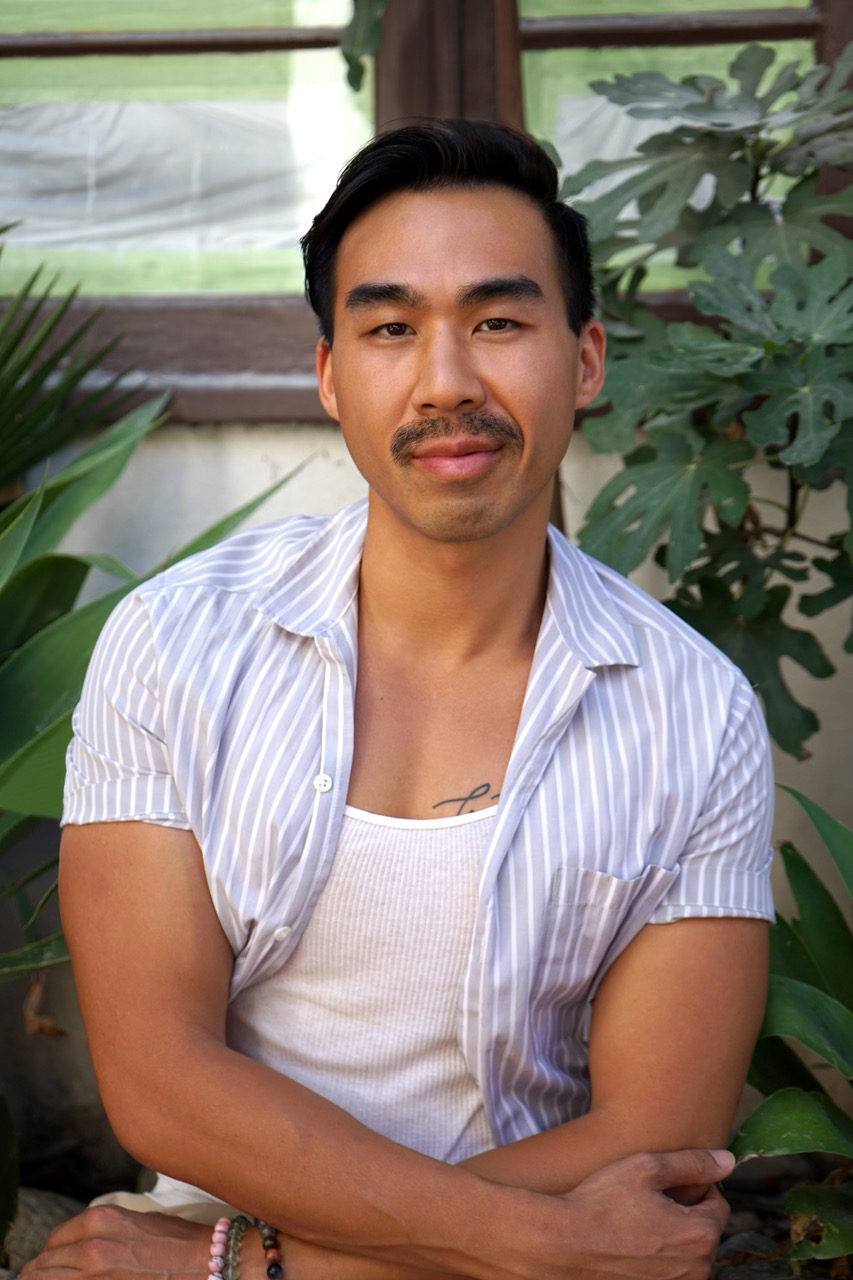 |
|
| Justinian Huang (photo: Ben Yi) |
|
Justinian Huang was born to immigrants in Monterey Park, Calif., and his books dive into intimately specific themes informed by his upbringing, such as past lives, reincarnation, and the weaving together of old-world beliefs with modern-day realities. Huang studied English at Pomona College and screenwriting at the University of Oxford, and he now lives in Los Angeles. His debut, The Emperor and the Endless Palace (Mira Books), is a genre-bending epic tale of true love against all the odds.
Handsell readers your book in 25 words or less:
A spicy romantic thriller about two soulmates who keep reincarnating as doomed lovers over 2,000 years, inspired by the true history of ancient Chinese Emperor Ai and his male lover Dong Xian.
On your nightstand now:
Ocean's Godori by Elaine U. Cho. (This is not a shameless plug for my friend Elaine; her book is literally on my nightstand right now.)
Favorite book when you were a child:
Mrs. Piggle-Wiggle by Betty MacDonald. I loved how she had a solution to everything, and I vaguely remember nominating her to be president in a homework assignment in elementary school.
Your top five authors:
Pu Songling, who wrote a classic collection of Chinese fables in the 1700s, one of which was about an innkeeper who becomes obsessed with a male fox spirit--a premise that I borrowed for my book.
Jackie Collins, because I had a fabulous aunt whom I worshipped growing up, and she had a huge collection of Jackie Collins novels that I would read and be scandalized by.
James Baldwin, a fellow queer man of color who shaped the way I thought about myself when I was newly out in college.
Oscar Wilde, because I have a recurring dream where I'm partying with him. That man can drink.
Beverly Cleary, because the Ramona and Beezus books taught me how to get along with my own big sister, one of my favorite people now that I'm an adult.
Book you've faked reading:
I was an English major in college, so there are too many to count! But the one that I have to have fake-read the most is probably Infinite Jest by David Foster Wallace. He was actually a professor at my college and was the kindest, most down to earth literary genius I've ever met.
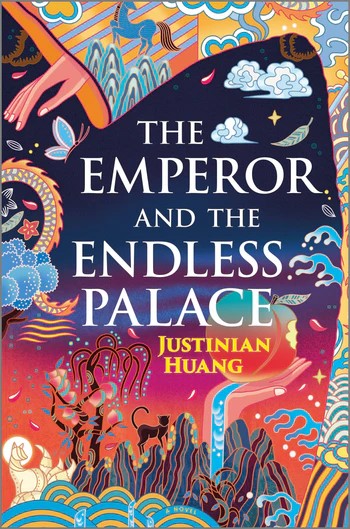 Book you're an evangelist for:
Book you're an evangelist for:
I just finished Dune by Frank Herbert, and I am so impressed with myself that I finally read it that I have to be an evangelist for it.
Book you've bought for the cover:
Harlequin romance novels from the grocery checkout line when I was a teen. (If you know, you know.)
Book you hid from your parents:
The previously mentioned Harlequin romance novels.
Book that changed your life:
Hello, He Lied by Lynda Obst. Lynda was my first mentor when I started working in the film industry as a runner on Paramount lot.
Favorite line from a book:
It's technically a play, but: "I have always depended on the kindness of strangers." From Tennessee Williams's A Streetcar Named Desire. It resonates with me because my life has been changed many times by strangers, especially on this debut novel journey.
Five books you'll never part with:
I'm okay to part with books... it is the people in my life that I can never part with.
Book you most want to read again for the first time:
Probably The Lion, the Witch, and the Wardrobe by C.S. Lewis because I was a kid and it just ignited my imagination in a way that very few books had.


